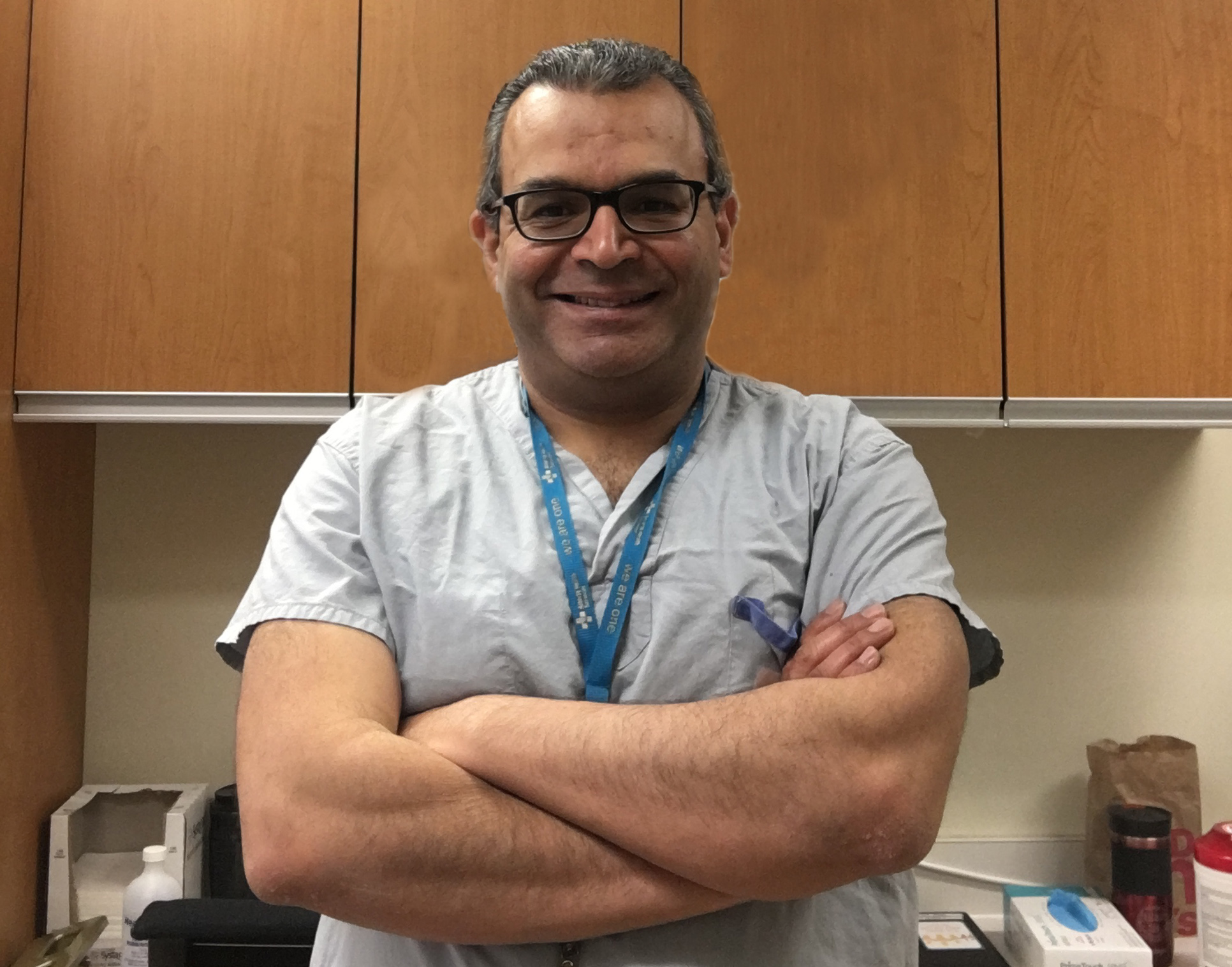Instructors
Research
Health And Wellness
Bringing the bench to the bedside in neurocritical pharmaceutical care
29 August 2022

Sherif Hanafy Mahmoud. Photo supplied.
Mahmoud’s time at the University of Alberta began with a PhD in pharmacokinetics, after completing both a BSc and MSc at Ains-Shams University in Cairo, Egypt.
Now a passionate researcher, much-lauded mentor and teacher and neurocritical care pharmacist, we caught up with Mahmoud to find out more about his work.
What is the focus of your research?
My overall research program aims to translate benchside and bedside observations into clinical practice protocols that will potentially improve health and well-being of patients with life-threatening neurological emergencies and patients with epilepsy. I study the influence of neurological injury on the action and disposition of drugs, an important step towards precision pharmacotherapy.
For example, research suggests that patients with life-threatening neurological illnesses present with a phenomenon called augmented renal clearance (ARC) or, in other words, “super kidneys.” ARC has a significant influence on how medications are removed from the body, potentially resulting in insufficient doses and treatment failure, and subsequently leading to poor patient well-being and increased health-care cost. Therefore, patients with ARC require higher medication doses; however, ARC is largely undetected using kidney-assessment methods currently in practice. In addition, it is not clear how medications should be dosed in those with ARC. To address this knowledge gap, I aim to characterize the phenomenon of ARC in patients with life-threatening neurological illnesses through identifying the frequency, duration, contributing factors and clinical impact of ARC. This research is kindly supported by the University Hospital Foundation and the Faculty of Pharmacy and Pharmaceutical Sciences.
What sort of impact do you hope your research will make?
Research showed that patients with neurological injury and those who are critically ill may respond differently to medications compared to those who are not. Identifying those differences will help us recommend optimized medication regimens that suit individual patients. The recommendations of optimized medication regimens in patients with life-threatening neurological emergencies and patients with epilepsy would improve the likelihood of treatment success with the potential to improve patients’ health and well-being and reduce health-care cost.
What led you to this area of study?
My background training in pharmacokinetics and my 10-plus years of clinical practice experience in the field of neurocritical care. Neurocritical-care patients suffer from devastating illnesses that require prompt, safe and effective treatments. Research in optimizing those treatments will potentially contribute to improving patient outcomes.
What’s the most rewarding aspect of your work?
To see my research findings being directly applicable to clinical practice and contributing to improved patient outcomes. Also, I find mentoring and teaching students to learn skills that they can utilize throughout their career a very rewarding aspect of my work.
What’s the most challenging part of your research?
It is a 24/7 job; however, it is important to allocate time to yourself and your family to avoid burnout.
What is something your colleagues would be surprised to learn about you?
I am an avid soccer fan!
What's the No. 1 piece of advice you give your grad students?
I advise graduate students to take this opportunity to learn as many skills as possible to be successful researchers: learn how to identify the problem, ask research questions, set goals, manage time, manage resources and how to set time for themselves to recharge. And the most important advice is not to give up!
If you hadn't become a researcher, what do you think you'd be doing instead?
I would be a fisherman and live by the sea.